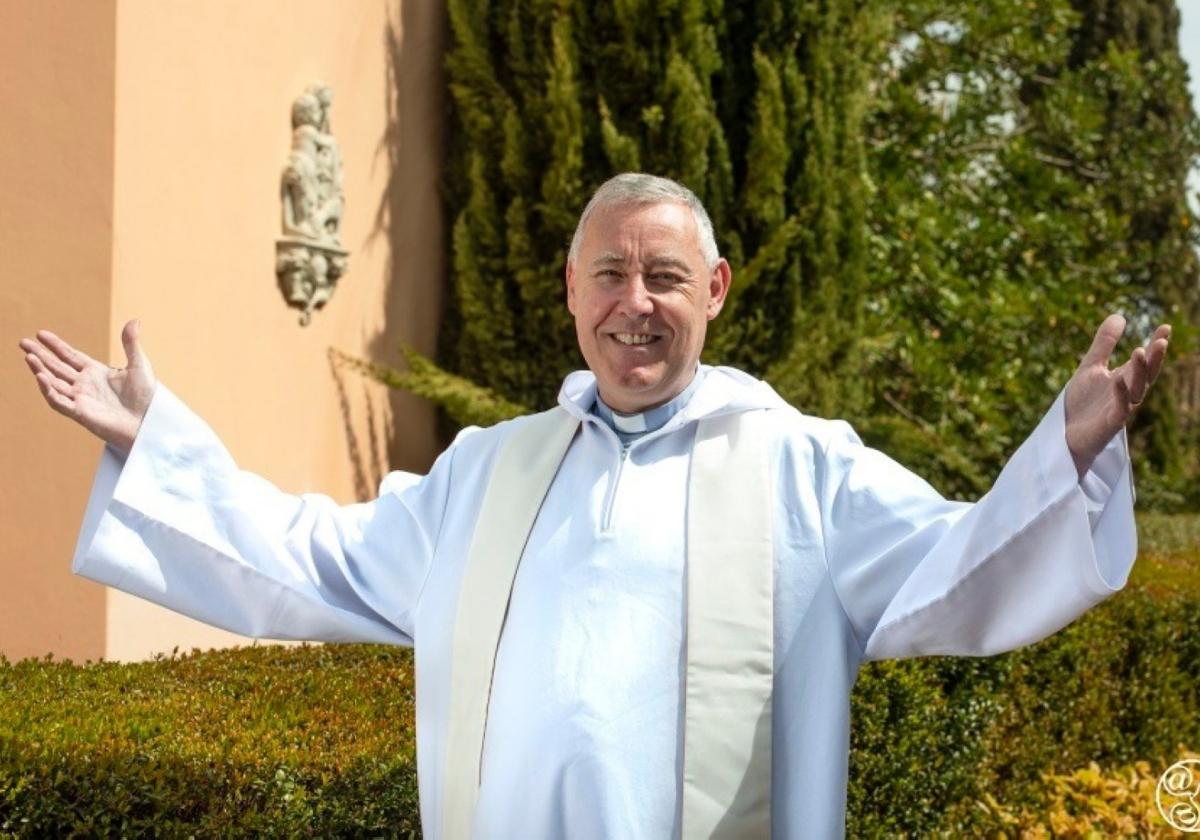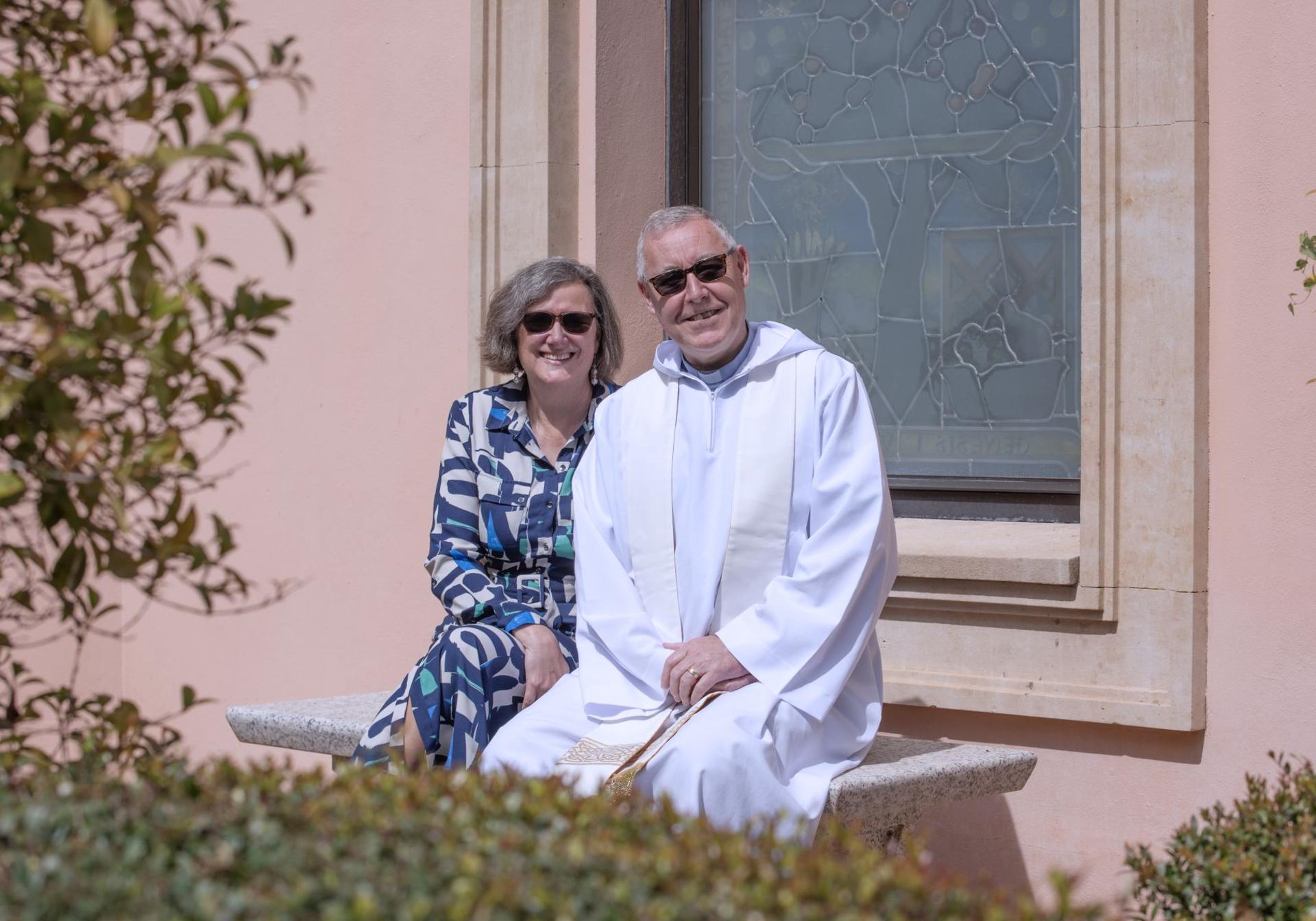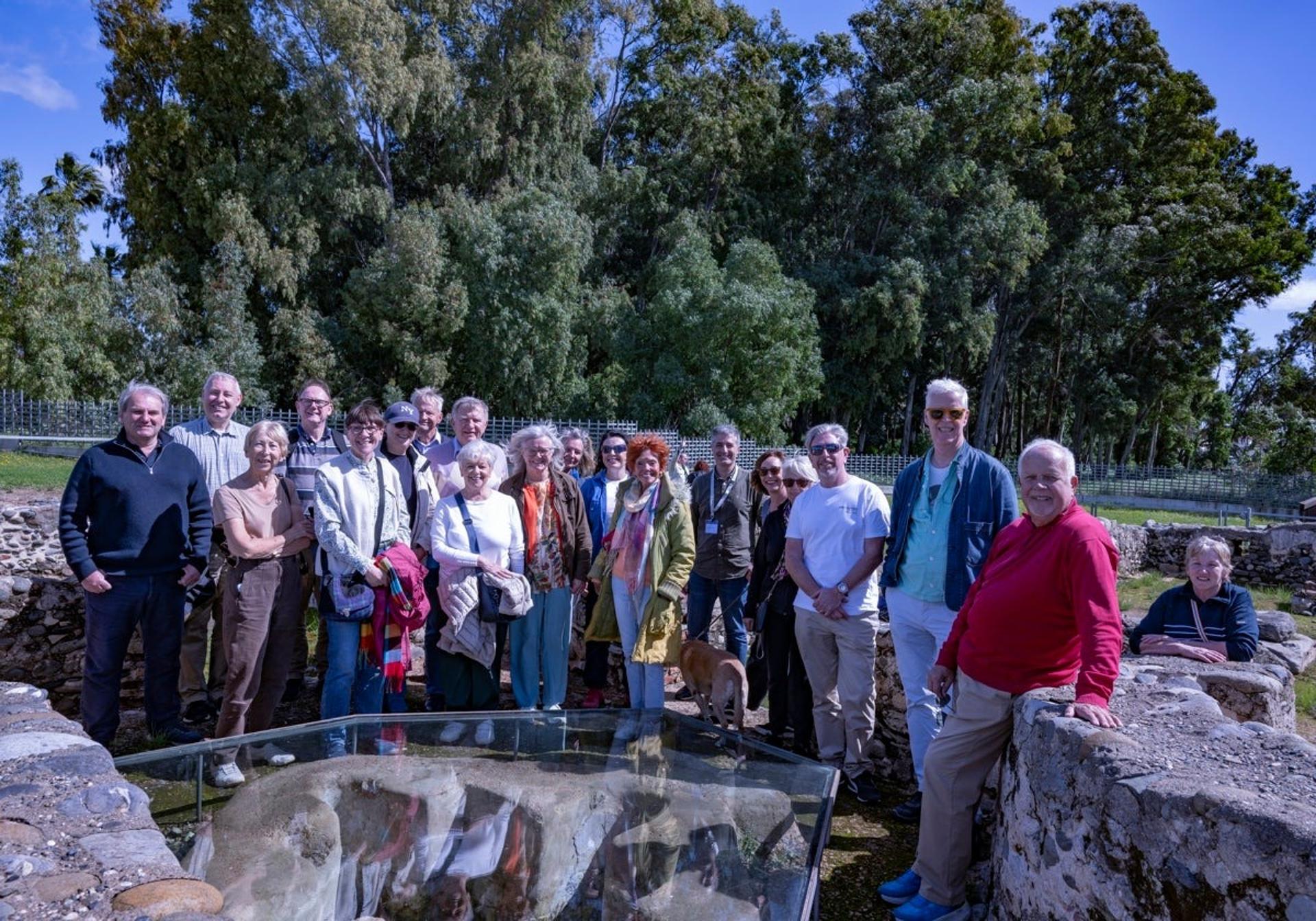

Sections
Highlight

Tony Bryant
Thursday, 17 April 2025, 13:40
The Anglican Church of San Pedro Alcántara and Sotogrande is celebrating five decades of serving the English-speaking Christian community of the western Costa del Sol, which covers an area from Marbella to Algeciras, and includes Estepona, Manilva, Duquesa and Sotogrande. In order to mark the golden jubilee year, the community has organised a series of spiritual activities under the guidance of Reverend Tony Carroll, who took over as chaplain in May 2023.
SUR in English caught up with the priest, who lives in Estepona, shortly before the Holy Week activities began to take over the streets, one of his "favourite periods on the coast".
"The church was founded by a group of people who met in their houses to pray and study the bible together. They decided to set up the chaplaincy, which became possible when Franco's regime was coming to an end. At this time, it was possible for other Christian groups to set themselves up," Father Tony explains to SUR in English.
Born in Liverpool in 1965, Tony set out on his religious quest at the age of 22, when he joined a Roman Catholic religious order called the Jesuits, with whom he stayed for 25 years. During this time, he lived in Spain, Mexico, Colombia and Guatemala.
Between 1993 and 1995, Father Tony lived in Bilbao and he learned to speak Spanish while working with a drug rehabilitation group called Proyecto Hombre.
"The Basque Country is very different to the Costa del Sol. It rains a lot, and it's very green. It was rather difficult for the first six months, but I soon experienced the beauty of speaking Spanish. The people are different also. They are less exuberant, more serious, I suppose," the reverend says.
Father Tony also worked in the UK for 15 years, where he taught philosophy and theology at the University of London.

In 2013, he made the decision to leave the Roman Catholic church to join the Anglican church in order "to get married", which he did in 2015.
"I was a celibate Roman Catholic priest until 2013. I married my wife Gisela in 2015," he says.
Prior to coming to the Costa del Sol, Tony worked in Folkestone, after which, he taught at an Anglican priest training college in Mirfield, Yorkshire, for five years.
"I applied for the job here while in England and I was very much looking forward to it. I had never lived in this part of the world, so I was excited and full of expectation," he explains.
Father Tony says that he is "still relatively new to the area" and that he is still "exploring and experimenting" to understand how best to serve his community. He is also "very interested to learn the stories of the incredible people who have settled here".
"We get to hear these stories in our community by chatting and listening to people. We have an amazing foreign community here and they have incredible stories to tell," he says.
He points out that the Church's core mission on the coast has two sides. It has an "insider group" for worship on a Sunday, and a broader side where it endeavours to include people who are "not religious", but who enjoy cultural activities.
"The way of thinking for the Anglican church is that it doesn't only serve the churchgoers. The key aspect is to look after the English-speaking Christians and help them to worship God. The second mission is to look after people in the community, not only the Christians, but also the broader community, people who never go anywhere near a church. We are here for them as well. We encourage people who describe themselves as not being particularly religious to join in our cultural activities," he explains.

One of these initiatives is the Walk and Talk series, which offers people the chance to enjoy local history and the Andalusian countryside. The most recent walk took place last month, when a group of 25 people visited the Termas de las Bóvedas Roman baths and the Basílica Paleocristiana de Vega del Mar, one of the oldest Christian churches on the Iberian Peninsula, dating from the third to the eighth century.
"These walks are for English speakers. They don't have to be churchgoers; we invite everyone to join our community and make friends while enjoying the countryside and learning about the history of the area. My sense is that people are interested in history and culture. I think everybody is searching in life to discover what it is about and how they can live it well," he declares.
Another way the priest tries to spread his message is with philosophy, a subject on which he has recently published a book.
"Philosophy is a kind of secret scripture for the non-religious. It is often a way that people try to understand the world and themselves. Philosophy gives you a kind of language to talk about these things. It puts you in touch with people who, for thousands of years, have, just like us, been searching to find out what life is all about and how to live it to the best," he explains.
The Anglican priest feels that, even though it is often criticised, the Church is constantly changing. He says that it has become more accepting and tolerant, and "this is one of the greatest experiences we have seen in our lifetime".
"The tradition of the Church is always to be attentive to the movement of the spirit amongst us, and that's always fresh, always new and always changing. It has always had a kind of continuity, but it's always evolving, and this is the tradition of the Church over the last 2,000 years. This notion that the Church never changes is not an accurate description of how the Church has been throughout history. Change happens in a way that is faithful to what's gone on before, but it should always be creative," he says.
Once Easter has finished, Father Tony will be busy preparing for the "great celebration" on 14 June at the International Club of Estepona (ICE) to mark the church's 50th anniversary.
Noticia Patrocinada
Publicidad
Jon Garay e Isabel Toledo
Paco Griñán | Málaga
Cristina Cándido y Álex Sánchez
Esta funcionalidad es exclusiva para registrados.
Reporta un error en esta noticia

Debido a un error no hemos podido dar de alta tu suscripción.
Por favor, ponte en contacto con Atención al Cliente.

¡Bienvenido a SURINENGLISH!

Tu suscripción con Google se ha realizado correctamente, pero ya tenías otra suscripción activa en SURINENGLISH.
Déjanos tus datos y nos pondremos en contacto contigo para analizar tu caso

¡Tu suscripción con Google se ha realizado correctamente!
La compra se ha asociado al siguiente email
Comentar es una ventaja exclusiva para registrados
¿Ya eres registrado?
Inicia sesiónNecesitas ser suscriptor para poder votar.